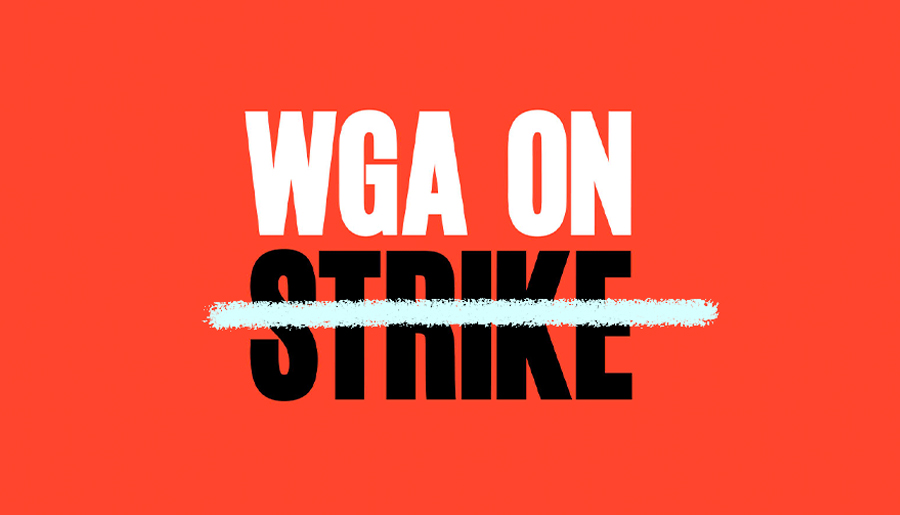On September 27, as midnight nestled into dawn, Hollywood’s writers strike ended.
That’s right, the Writers Guild of America (WGA), the organisation behind this strike, has told its members to stop picketing and protesting. After 148 days of fighting with the Alliance of Motion Picture and Television Producers (AMPTP) for better working conditions, the WGA believes that they’ve scored a mint deal.
The AMPTP is an institution that does contract negotiations on behalf of all the Hollywood studios. On September 24, they supplied the WGA with a contract proposal that both parties were pleased with.
“The WGA reached a tentative agreement with the Alliance of Motion Picture and Television Producers on a new three-year Minimum Basic Agreement,” said the WGA in a statement. “On September 26, the Negotiating Committee, the WGAW Board, and WGAE Council all voted unanimously to recommend the agreement.”
“The WGAW Board and WGAE Council also voted to lift the restraining order and end the strike as of 12.01am Pacific Time and 3.01am Eastern Time on Wednesday, September 27. This allows writers to return to work during the ratification process.”
It is now up to each WGA member to vote if they are happy with this tentative deal. These members can cast their ratification votes from October 2 until October 9.
But what’s in this proposal? Why did a tentative deal end the writers strike? Is there anymore industrial goss?
Well, fortunately for us, the WGA has released this information. So let’s unpack these big deets.
The WGA’s Writers Strike Wins
Minimum Wage Increases
During the writers strike, the WGA was adamant that its members needed better minimum wages. This is because inflation has devalued many worker’s salaries and the cost of living crisis is everywhere.
Thankfully though, the WGA was able to pull off a negation slay. They were able to score their members higher minimum salaries.
In 2023, WGA minimum wages will increase by 5%. Meanwhile, in 2024, WGA wages will increase by 4%, and in 2025, WGA wages will increase by 3.5%.
This news is huge, as the AMPTP was originally offering wage increases that were capped at 4% and went down to being 2% low. Such increases would have been well below the rising tides of inflation.
ChatGPT Vs Scriptwriters
ChatGPT, it’s everywhere. Lawyers are using this chatbot to write contracts, and doctors are using it to write prescriptions. Terrifying, we know.
What’s more, the WGA was worried that AI chatbots would eventually crush its workforce. They were worried that its scriptwriters would be replaced by machines.
Therefore, during the writers strike, the WGA fought for a bunch of safety nets. This Guild wanted the AMPTP to limit what AI could do in the workforce.
Which is exactly what will happen. If the AMPTP’s proposal passes, AI services won’t be allowed to write or rewrite literary materials. Additionally, AI-generated works won’t be considered source materials.
According to The Verge, this means that a studio can’t get ChatGPT to create a short story and then hire a writer to turn it into a script. Writers will still be integral to creating new intellectual properties.
Finally, if AI bots get too sophisticated, the WGA can classify these tools as exploitative. And all exploitative tools won’t be used in the workforce. This means that scriptwriting will belong to the living.
Streaming Service Residuals
When a writer works on a film, they are paid residuals for each time this work is played in a cinema, bought from a shop, or streamed.
However, streaming services have traditionally been cagey about sharing how many times a specific work has been played. This means that the WGA hasn’t known if its members are being correctly paid for their labour.
But if the AMPTP’s proposal passes, this situation will change. The WGA will know how many times a Netflix or a Disney+ movie gets streamed. The Guild will then be able to share this info with its members in an aggregated form.
What’s more, WGA writers will also score better residuals when a film or series they worked on gets streamed. For instance, streaming residuals for works streamed in non-American countries will get bumped up. Overall, writers can expect a 76% increase in profits. What a win.
A Writers Strike Deal Disclaimer
After 148 days of picketing, the writers strike is now over, a tentative deal has been made. What’s more, all the gains the WGA has made haven’t been detailed in this deep dive. The complete tentative agreement is 94 pages. If we were to unpack all of its nuances, we’d be here for 800 years.
However, if you’re curious about going through these facts, a link to this agreement is here.
Want more entertainment news? Click here to read all our content, and go through the stories below:
- Where Are All the Great Union Films?
- Hollywood on Pause — The SAG Strike Explained
- Unpacking the Drew Barrymore and Bill Maher Drama
- The Writers Strike Is Now Over 100 Days Old
- Why the 2007 Writers Strike Changed Everything
- The 75th Emmys Have Been Pushed Back Into the Ether
Read more stories from The Latch and subscribe to our email newsletter.

